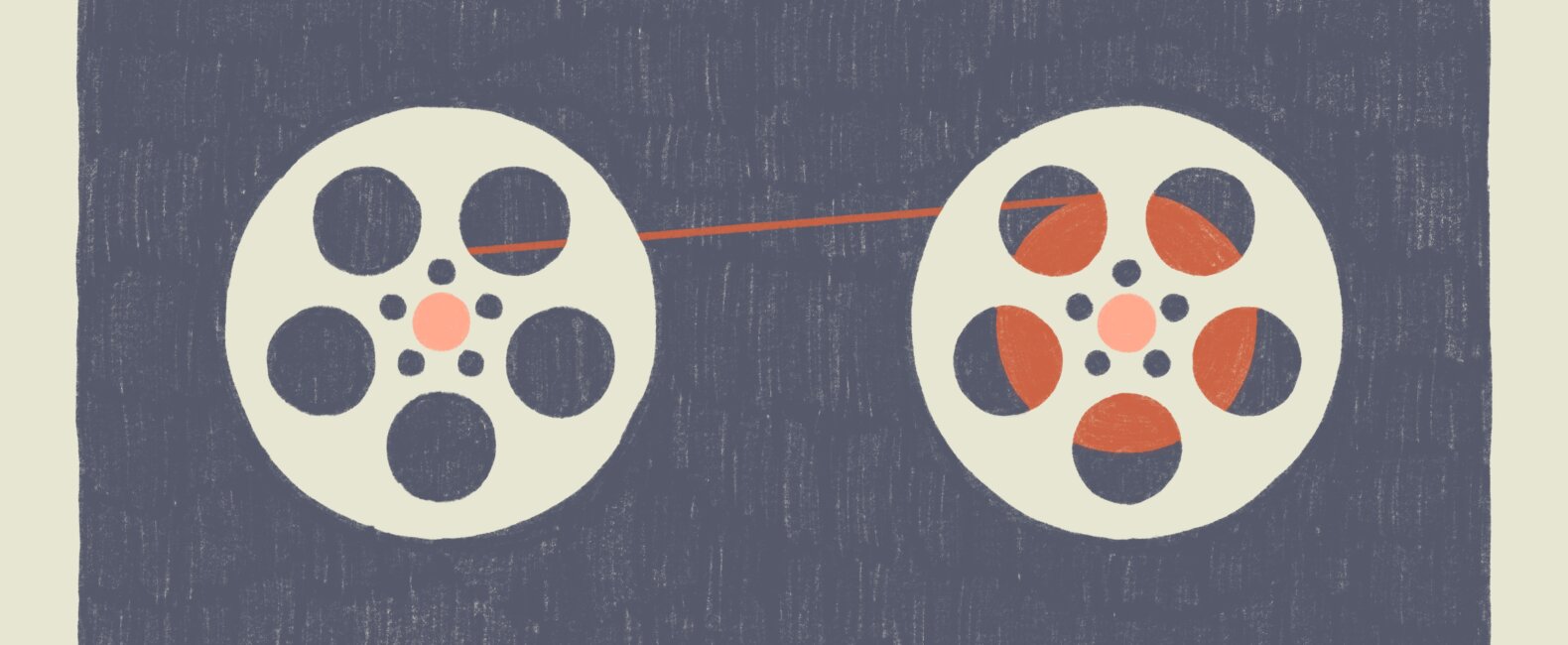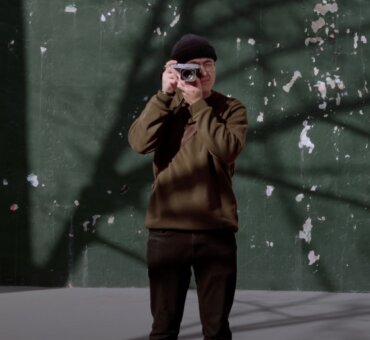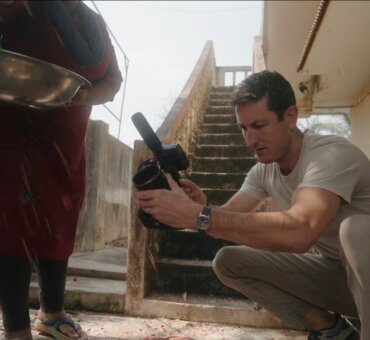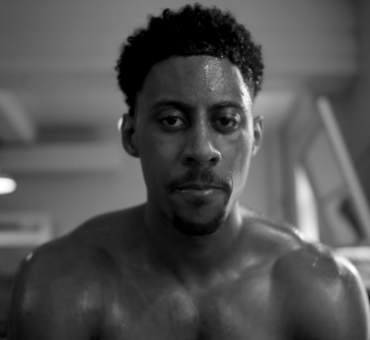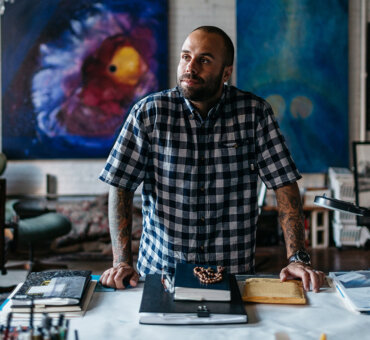Welcome to our second edition of Recommended Reading for Filmmakers! Forgive us if we overdo the whole “you should read more” message, but it’s a hill we’re absolutely willing to die on. The entire experience of reading is packed with value on so many levels. It’s a meditative experience. It broadens your perspective. It’s cheap. It makes you a better creative. You look smart while doing it.
In other words, reading is one of the simplest ways to immediately improve your life in every regard, even your filmmaking. A while back we reached out to some of our friends in filmmaking to see what they would add to our Recommended Reading for Filmmakers list and they had some incredibly thoughtful responses. So, we thought we’d go for round two because we’re sure as hell not running out of books to read.
The responses we received back were unsurprisingly surprising, a mixture of instructive material and flat-out artistry. Of course, our “summer reading” recommendations aren’t just good for summer. We all need some downtime in between projects, so if you’re looking for a good way to fill it, here’s a great place to start.
Instant Light: Tarkovsky Polaroids by Andrei Tarkovsky

Recommended by Director Henry Busby:
I bought this while stranded in London after a break-up and it’s been with me ever since as something to revisit. This is the most useful for me because it is about connecting to the soul of a director instead of the products of their labor. I’ve actually never watched a Tarkovsky film (blasphemy, I know), partly because I found this so meaningful. I connected at the spirit level and prefer to let the rest be a mystery so that I don’t have his images banging around in my head while trying to go my own way.
The Creative Habit by Twyla Tharp

Recommended by Producer Sarah Schutzki:
Most of the books I read are nonfiction and relate to a project I’m developing or working on. That being said, I did recently pick up Twyla Tharp’s The Creative Habit. I really appreciate her insight and ideas for how to nurture/expand the creative process, regardless of the creative discipline. She makes reference to an artist who wouldn’t come home without a face—or, in my case, a story. Since reading that, I make it a point to take some time while out (whether for a walk, running errands, on a shoot, or in transit) to pay attention to what is happening around me and to seek out stories.
Directing Actors by Judith Weston

Recommended by Henry Busby:
This is the only book I’ve ever read about acting. I read it before my first time working with real actors to help calm the insecurity I had as someone with zero experience in theater or the craft of acting. It’s useful in that it gives you some tools to “speak actor” and build bridges at times when there’s a gap between you and a trained actor. Learn it so you can leave it, however, because you’ll be at your best building your own languages with the actors on each project.
Digital Minimalism: Choosing a Focused Life in a Noisy World by Cal Newport

Recommended by YouTube Creator Kraig Adams:
I find myself applying minimalism into more and more aspects of my life. Technology is great and can greatly enrich your life, but it can also have negative consequences. This book thoroughly described the negative effects of social media and helped me to revaluate my philosophy of technology usage. Break free of that slot machine in your pocket, optimize how you use social media, and fill your time with healthy habits and activities. Less can indeed be more.
Selected Takes: Films Editors on Editing by Vincent LoBrutto

Recommended by Musicbed:
We’re just starting a series inspired by this book but, by all means, please pick up your own copy and dive into it. Compiled of quick interviews with iconic editors, this book is the perfect read for catching the L train or just when you have a few minutes of free time between exports. Essentially, it’s a series of bite-sized chunks of editing wisdom and general insights from behind the curtain, a celebration of an art form that is woefully undercelebrated.
Poems from the Book of Hours by Rainer Maria Rilke

Recommended by Novo Films Founder/Director Lindsay Branham:
This may not be the most straightforward response, but Rainer Maria Rilke’s Book of Hours is, to me, creative life. Poetry opens the soul and filmmaking is the same—the visual dance to allow spaciousness beyond the ineffable, of which good poetry always grasps at, perhaps even better than film. And so I read the Book of Hours to practice playing with the beyond and to stretch my consciousness to consider the unseen and the unsayable, and then I bring that into what I create. Here’s one of my favorites:
If the drink is bitter, turn yourself to wine.
In this uncontainable night,
be the mystery at the crossroads of your senses,
the meaning discovered there.
And if the world has ceased to hear you,
say to the silent earth: I flow.
To the rushing water, speak: I am
The Return of the Prodigal Son by Henri Nouwen

Recommended by International Justice Mission Director Adam Joe:
For me, spirituality is a big part of my creativity. It’s what drives me and it’s a source of inspiration in how I tell stories. Regardless of your faith background, Nouwen is, in my opinion, one of the best authors to read when it comes to reflections on life, faith, meaning, and love. The entire premise of the book is a deep dive into Rembrandt’s famous painting that depicts the parable of the prodigal son. Thinking and reflecting critically on a painting has invigorated my creative juices. And the way the book helps me think about themes of grace, reconciliation, and joy is just incredible. As I work on films that tell stories about survivors of slavery and sexual assault, this book has helped me avoid cynicism—and cling to hope and joy in my process.
Don’t be afraid to veer from our Recommended Reading for Filmmakers list, either. Even the act of reading inherently has value. So, take the recommendations and run, but also don’t forget to read things you enjoy reading. We’re short on novels in this post, but fiction can play a huge role in your creative life as well. In a way, it’s an even more honest, direct way to get to the truth of the matter—and can even spark a great idea for that next screenplay.
The entire creative process is a deeply complex web of ideas and inspiration. By reading any sort of book, you’re creating even more connections that will enrich your work and your films. Earlier, we mentioned the first edition of Recommended Reading for Filmmakers we did a while back; you can check it out here, but here are the titles for a quick reference:
Past Selections:
A Guide for the Perplexed, Werner Herzog
The Spirituality of Imperfection, Ernest Kurtz and Katherine Ketcham
The Poems of Hafez, Shamseddin Hafez
Candide, Voltair
Making Movies, Sidney Lumet
Made to Stick, Chip Heath and Dan Heath
Art Forms in Nature, Ernst Haeckel
We hope you find some time (or even create some time) to crack open a book. Happy reading and let us know how it goes! This is a film blog, so here’s a great doc from filmmaker Max Joseph to inspire your reading ventures:















































































